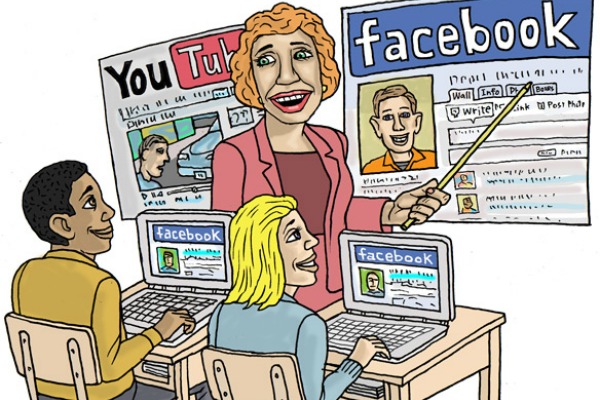A Social Media DIS-Connect
As a young teacher, there is nothing that you want to leave up to chance when it comes to your private information. This is brutally more pressing for male teachers. In my previous post, I detailed how my cell phone number almost went out to the entire class just because I chose to call a girl’s mother in order to wrap up a parent-teacher interview. Honestly speaking, if one of the boys from our basketball team somehow got my phone number, I would not feel as anxious as I did with a 12-year-old girl having it. Either way, that was a mistake that will never happen again and a mistake that, if you are reading this, should never happen to you. Because ultimately, teacher privacy should be guarded at all turns.
The Beast that is Social Media
The line between personal and professional is very thin and shifts from person to person. You want to be personal to reach out to and relate to students and have your students relate to you. You also need to maintain a strong sense of professionalism and a healthy dose of ambiguity about yourself simply for classroom management and authoritative purposes.
-
No book is better than Facebook!
Social networking is an ever-evolving platform of communication. Thus, novel measures of privacy and guidelines concerning social media amongst teachers and students are still being outlined throughout school boards. The general consensus is that teachers should not communicate with students over social networking cites, whether that is by Facebook, Twitter, or Instagram. The school phone and email are still the two objective and traditional ways of contact. These days however, it is inevitable that almost everyone over the age of twelve has some form of social media. And it almost seems that the younger the generation, the more media-literate the group. My naivety towards this fact is what led me into my third mistake regarding my privacy. Somehow one of students found my Facebook profile, even though I thought my privacy settings were as secure as Fort Knox.
My privacy settings were so high that I could barely access my own account! I made it almost impossible for anyone to search for me. Whenever the question of Facebook came up, my answer to students was a simple and unequivocal, “No, I do not have Facebook”. Even if you were to somehow miraculously know a friend of mine and then somehow, through that friend, be able to find me, there would be no way that you could look through my profile and pictures, unless you were a direct “friend” of mine. I thought case closed, sealed deal. That was until one day when two students approached me saying that not only did I have Facebook but they also found me and looked through all of my pictures! I asked them to prove it. One of them logged in and, after about five to ten minutes of following the crumbs of some corkscrew path of friends, there I was! They clicked through picture after picture that detailed my private life.
Social media is a small opening that can offer a large gaze into your life (depending on how you use it). Your social media network is something that you want to leave parked in your car in the morning and not an aspect of your life that you want to bring into the classroom with you. There really is no upside to having a bunch of students follow you on Facebook, Instagram, or Twitter. You wouldn’t want your students around you on a Friday night when you are out with your friends, would you? But if you are too loose with your social media, it will allow them to be there. So keep those tentacles a far reach away from the students and parents of your school. Because you never know how the person on the other end is “reading” a comment or a picture you have chosen to post.
As you navigate through those months, you will find your blend of things that work for you. When it comes to interacting with others, everyone has their own comfort zone. These comfort zones also shift depending on whether it is a personal, familial, friendship, or age-based relationship. All teachers will navigate their space based on their own personality and ideals. You will figure out your comfort zone on your own and make your own “line” regarding the professional versus the private. Right now, your zone and where you draw the line might be uncertain, but one thing is for sure. You will establish these boundaries through some of the experiences and mistakes that you make as a young and new teacher. And that’s okay. But it is better to be more guarded than less.
[share title=”Share this Post” facebook=”true” twitter=”true” google_plus=”true”]

